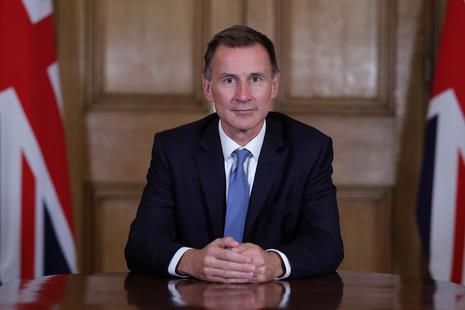The UK pensions industry is expecting the Autumn Statement – to be delivered by Jeremy Hunt, the chancellor of the exchequer, on Wednesday 22 november – to provide some updates on the Mansion House reforms after the King’s Speech failed to address pension reforms last week.
On 7 November, King Charles III delivered his first King’s Speech detailing the government’s plans for the year, however, pensions reforms were noticeably missing sparking disappointment across the sector.
Isio’s head of research and development Iain McLellan believes that the Autumn Statement will offer a “second bite at the cherry”.
He said: “There, we expect the Lifetime Allowance to be fully removed and maybe, just maybe, we’ll see that tax charge applied when surpluses are returned from defined benefit (DB) schemes to their sponsors reduced.”
McLellan pointed out that given the corporation tax rate currently stands at 25%, there’s a scope to make tax on surpluses, which is currently charged at 35%, a little less “onerous”.
“A less punitive charge might help to nudge schemes towards more investment in growth assets as surpluses arising, as a result, would not be taxed quite so hard,” he added.
During an event organised by AXA Investment Managers this week on options for DB schemes, panellists have also called on the government to look at tax cuts as an incentive for schemes to run on and invest in UK growth.
McLellan added that two other areas where new legislation is needed may still be addressed; this includes a formal regulatory system for superfunds and broadening out of Collective Defined Contribution (CDC) schemes to cover decumulation only and multi-employer schemes.
He said the superfunds market seems to have been able to get off the ground without legislation, with a first transaction by Clara Pensions completed earlier this month. However, he warned that CDC schemes are still brand new so may benefit from being slightly delayed to see how the concept works in practice.

Mansion House reforms
In July Hunt announced a number of reforms, dubbed Mansion House reforms, which were intended to unlock up to £75bn of investment from defined contribution (DC) and Local Government Pensions Schemes (LGPS) to boost UK growth.
Leonard Bowman, partner at Hymans Robertson, meanwhile said that the chancellor should be “bold and creative” about long-term policy that would deliver “pension promises, supports workers and builds prosperity throughout society”.
“There’s a significant opportunity here for the current government and its successors to take, or at least take steps towards creating a better saving and investment environment that aligns with wider societal aims,” he noted.
He pointed out that past pension policies have led to unintended outcomes that aren’t good for businesses, savers, or society.
“The regulatory environment is not yet geared towards innovative retirement saving designs, and it’s important that the right regulation is in place, including the DB funding code,” he said.
“Policy support could foster a spectrum of retirement designs ranging from pure DC, collective DC, pooling of longevity risk solutions and new types of DB schemes which could reinvigorate retirement saving and create a larger pool of assets,” Bowman continued.
Steven Cameron, pensions director at Aegon, expects an update on the next steps for the proposed DC value for money framework which will bring in standard metrics on investment performance, charges and customer service standards.
Other things Cameron expects to feature in the Autumn Statement include the introduction of new variations of CDC pension schemes, with a structure more suited to investing in private equity; and offering members of trust-based schemes a wider range of retirement choices and support.
“The July proposals for dealing with the many millions of ‘left behind’ small deferred pension pots of under £1,000 proved controversial but again, we expect an update on the latest government plans,” he said.
This, Cameron said, comes alongside other major pension developments such as pension dashboards and the highly important extension of auto-enrolment.
He said: “We strongly encourage the chancellor to take a phased and prioritised approach to implementation, rather than risking a chaotic attempt to implement so many radical changes all at once.”
Read the digital edition of IPE’s latest magazine























